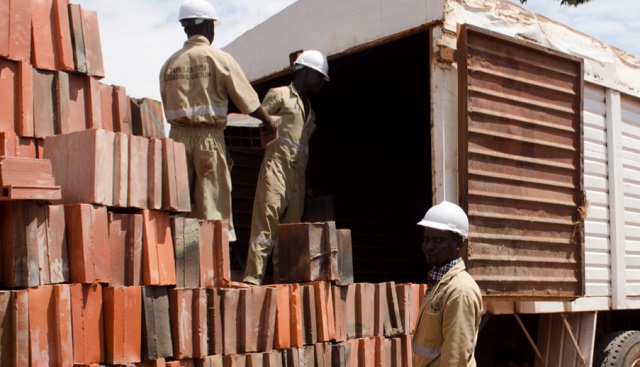
Uganda Clays Limited, the producer of baked clay building products, has recorded a drop in operating costs but losses increased for the second consecutive year, as it faced stiff competition in the construction sector amidst coronavirus pandemic.
Kampala, Uganda | ISAAC KHISA | The company recorded a 6% reduction in operating costs to Shs4.5billion in the first half of this year ending June 30, 2020. However, its net loss increased from Shs128million in the first half of 2019 to Shs1.4billion this year. Losses before tax increased from Shs182million to Shs2billion during the same period under review.
Similarly, the company’s revenue decreased by 13% to Shs13bn for the period compared to Shs 15bn in the same period in 2019, with the company executives citing business disruptions impacted by the COVID-19 pandemic.
The company’s assets declined by 7% to Shs62.9bn as a result of depreciation of the machinery and so is the shareholder equity that reduced by 12% to Shs31bn.
However, cost of sales increased by 2% to Shs 10.8billion for the period from Shs 10.6bn for the same period in 2019, driven by a fall in product sales volume.
This development comes five months since the company’s Board of Directors sacked its Managing Director, George Inholo, for failing to get the company back on a growth path. He was replaced with Jaqueline Kiwanuka in acting capacity.
Inholo, who had been recruited in 2014, was shown the exit alongside the Head of Production, Head of Human Resources and Support Services, effective March 06, 2020.
Aeko Ongodia, a renowned Charted Finance Analyst and founder and CEO of Xeno Technologies, an investment management company based in Kampala told The Independent that like any other companies in the construction sector, Uganda Clays, may not be ‘moving out the woods anytime soon’ as a result of its over-reliance on the performance of the economy.
“The industry in general is also facing stiff competition especially in the production of competing products, and in particular, this company (Uganda Clays) has not sufficiently done enough to distinguish itself from the competition,” he said.
Nevertheless, Ongodia said the company needs to carry out cost rationalisation as well as expand the product range and or make their products much better than those of competitors.
Currently, the company produces roofing tiles, bricks, interlocking and corner blocks, partitioning blocks, decorative grilles, ventilators, floor tiles, pipes, and cable covers in sector that has seen a surge in the number of producers of similar products.
The future
Uganda Clays, which had returned to profitability in 2016 following seven consecutive years of losses, is now staring at uncertain future.
Jaqueline Kiwanuka, the acting MD and Martin Kasekende, the chairman Board of Directors said due to the pandemic, the road ahead is presented with uncertainty on the business and the economy.
“We are however committed to building a sustainable business,” the duo said in a joint statement.
“Our primary focus is to ensure continued safety of staff, seek avenues to boost business growth and continue to implement cost management initiatives.”
Listed on the Uganda Stock Exchange in 2000, UCL registered a persistence growth in profits until 2009 when it registered a Shs707 million loss from a profit of Shs2.15 billion in 2008. It blamed the shift in performance on the effects of the global financial crisis. It has never recovered since.
Its woes, however, were worsened with the timing of the establishment of the second plant at Kamonkoli, in eastern Uganda, with the help of a loan from one of its shareholders, National Social Security Fund. The plant hiked the company’s operating expenses; especially for procurement of the heavy fuel used to dry the clay at a time when the economy was slowing down dramatically.
The plunge into red led to negative investor sentiments on the USE which led to a drop in share price from Shs60 in 2009 to Shs 24 in 2017 and Shs8 by press time.
The fortunes of UCL now lie majorly on the financial muscle of its main shareholders, including the National Insurance Corporation with 17.86 %, Central Bank of Kenya Employee Pension Fund, Bank of Uganda Staff Retirement Plan, and NSSF.
Kenya Power and Lighting Company, Uganda Communications Employees Contribution Plan, Kenya Airways Staff Provident Fund, Uganda Development Bank and National Social Security Fund Staff Investment, among others, are the other shareholders.
Uganda Clays Limited profit trend
| Half Year | 2015 | 2016 | 2017 | 2018 | 2019 | 2020 |
| Profit/loss Shs(millions) | -1,300 | 1,300 | 2,100 | 1,200 | -128 | -1,430 |
****
 The Independent Uganda: You get the Truth we Pay the Price
The Independent Uganda: You get the Truth we Pay the Price



